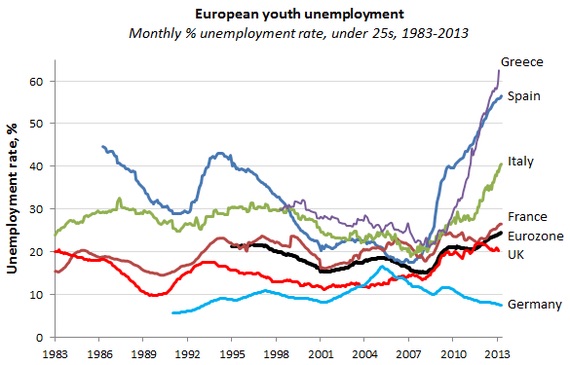Representative Democracy Is A Waste Of Time
By Fritz Tucker
23 July, 2015
Zeteojournal.com

Greece is, in many ways, representative of the world right now. Its economy is floundering due to, among other things, bad loans taken out by self-interested ruling parties aided and abetted by Goldman Sachs. Greek unemployment has reached record highs despite employed Greeks working longer hours than any other members of the Eurozone. The German response to this is austerity: including having Greece cut pensions, and sell its utilities and airports. Even the IMF has determined these measures to be counter-productive, preferring debt-relief.
The Greek people clearly agree with the IMF, and have eschewed allegiance to established political parties by voting for any party willing to reject austerity. The Greek Syriza Party rapidly rose from obscurity to ruling party by adopting anti-austerity rhetoric. It has proven, however, to be just that: rhetoric. Even after a popular referendum that rejected austerity by a 61:39 margin, Greece’s Prime Minister Alex Tsipras agreed to Germany’s terms; Greece’s Parliament—the political body that supposedly represents the Greek people—promptly did the same by a 229:71 margin.
This failure by political parties to represent the will of the Greek people should shock nobody. Our prevailing hodgepodge of elected and appointed judges, juries, politicians, parties, legislators, and executives have never truly represented the will of the billions of people alive. At its inception, however, representative democracy was the best approximation of such. Representational democracy came about at a time when horses (and later trains) were the fastest way to transport not just people, but communiqués. Regular popular referendums on a global, national, regional, and even local scale were simply infeasible due to time constraints. The logical countermovement to expansive representational democracy was one that advocated a return to local, participatory governance despite the anarchy that would result in humans across the world not coordinating what they were doing with one another.
In the twenty-first century, however, participatory democracy is not just desirable, but feasible. Digital, electronic communication is essentially instantaneous, recorded in abundance, and easily searchable. In a society of billions, nobody will never have time to vote on everything, even if he or she was interested in doing so. Nevertheless, all social decisions can now be made democratically and voluntarily, rather than professionally and exclusively. If governments today are to claim to be “democratic,” they must not only submit to democratic processes that already exist—such as referendums—but must establish new democratic processes to the best of humanity’s capabilities. A society that possesses the technical and social capacity to conduct digital banking and endless online polls, but has yet to establish electronic voting mechanisms that allow everybody to have a say in governmental policy can no longer claim to be democratic.
The Greek people not only have to work harder than any other people in the Eurozone, nor can they occasionally elect parties to represent their interests. Now they have to take time out of their busy days to hold popular referendums—in which people must vote in person—to hold their elected representatives accountable to their promises. And when that doesn’t work, they must sacrifice even further by taking to the streets to show their uncooperative ‘representatives’ that they can be removed by means other than the ballot box. If the Greek people manage to manifest the will of the majority in spite of these myriad obstacles, they may once again find themselves at the epicenter of European democracy.
(A more complete explanation of digital democracy can be found in the author'sMaster's thesis.)
Fritz Tucker is a native Brooklynite, writer, activist, theorist and researcher of people's movements the world over, from the US to Nepal.
.
Comments are moderated



